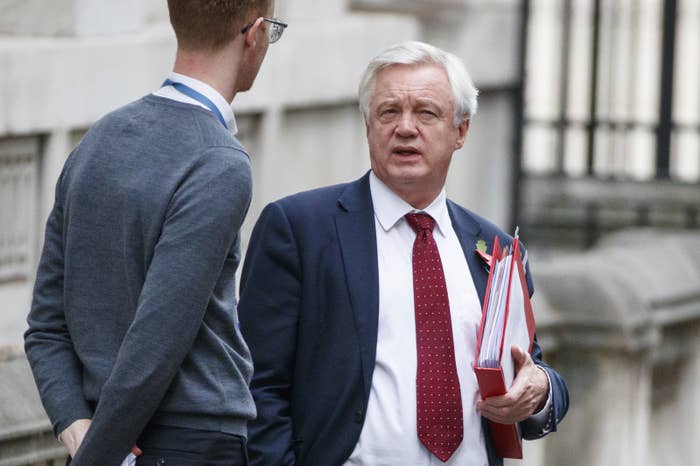
Labour is piling pressure on the government to publish a raft of secret files outlining the likely impact of Brexit, by using an ancient parliamentary technique to make an opposition day vote binding.
A number of Tory MPs are expected to side with Labour in the Commons debate on Wednesday, as the opposition demands that Brexit secretary David Davis hands over the papers to the cross-party committee on exiting the EU.
Davis has confirmed that 58 reports have been prepared looking at different sectors of the economy. But so far he has resisted pressure to publish them, warning on Tuesday it would undermine the "negotiating stance of the British government".
Labour counterpart, Sir Keir Starmer will use "an ancient but still effective" procedure to force a binding vote requiring Davis to release the papers.
It comes amid frustration from Labour that the government have been ordering their MPs to abstain on opposition day motions in recent weeks. If the same tactic is used on Wednesday, Labour believes Davis will have no choice but to publish.
Senior Tory MP Dominic Grieve, a former attorney general, has already called on Davis to release the documents. And Sarah Wollaston, chair of the health committee, has told The Guardian they should be in the public domain.

Starmer said: "This debate is about transparency and accountability. Ministers cannot keep withholding vital information from Parliament about the impact of Brexit on jobs and the economy.
"Labour recognises the importance of protecting the government’s negotiating position with the European Union. However, that does not give ministers the right to impose a blanket ban on publishing any information whatsoever about the economic impact of Brexit."
Davis told the House of Lords EU committee on Tuesday: "There was a House of Commons vote in December of last year where we said that we are not required to release anything which undermines the negotiation or the national interest frankly, or the negotiating stance of the British government.
"That is the reasoning behind it. But I don’t think you should overestimate what’s in them. They're not economic models of each sector, they are looking at how much of it depends on European Union versus other markets, what other opportunities may be, what the regulatory structures are, all those sorts of things that inform the negotiation, but they are not predictions. So I wouldn’t overestimate what they are."
Frances O'Grady, general secretary of the Trades Union Congress (TUC), called on the government to "come clean on the impact Brexit will have on people’s jobs and livelihoods".
She said: "It’s a poor excuse to say the secrecy is needed for negotiations. The EU27 will have the same information already from work by their own officials. The only people being kept in the dark are the British public.
"The longer that ministers hide the truth, the more people will believe it’s to bury bad news."
